Bài giảng Kiến trúc phần mềm - Chương: Các tiêu chí và yêu cầu về Kiến trúc phần mềm - Trần Minh Triết
What are Quality Attributes
Often know as –ilities
Reliability
Availability
Portability
Scalability
Performance (!)
Part of a system‟s NFRs
“how” the system achieves its functional
requirements
3Quality Attribute Specification
Architects are often told:
“My application must be fast/secure/scale”
Far too imprecise to be any use at all
Quality attributes (QAs) must be made
precise/measurable for a given system design, e.g.
“It must be possible to scale the deployment from an
initial 100 geographically dispersed user desktops to
10,000 without an increase in effort/cost for
installation and configuration.”
4Quality Attribute Specification
QA‟s must be concrete
But what about testable?
Test scalability by installing system on 10K
desktops?
Often careful analysis of a proposed solution is all that
is possible
“It‟s all talk until the code runs”
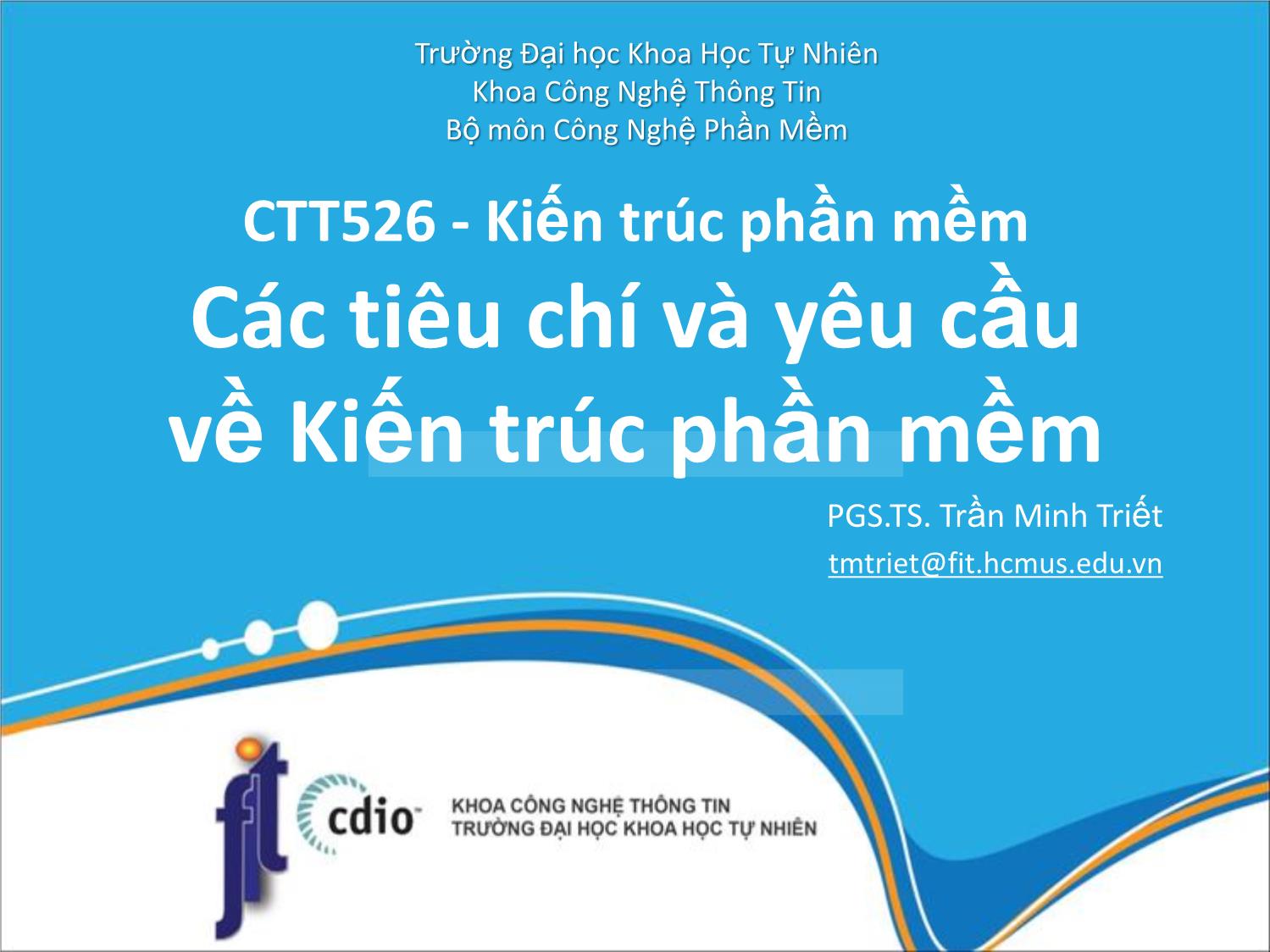
Trang 1
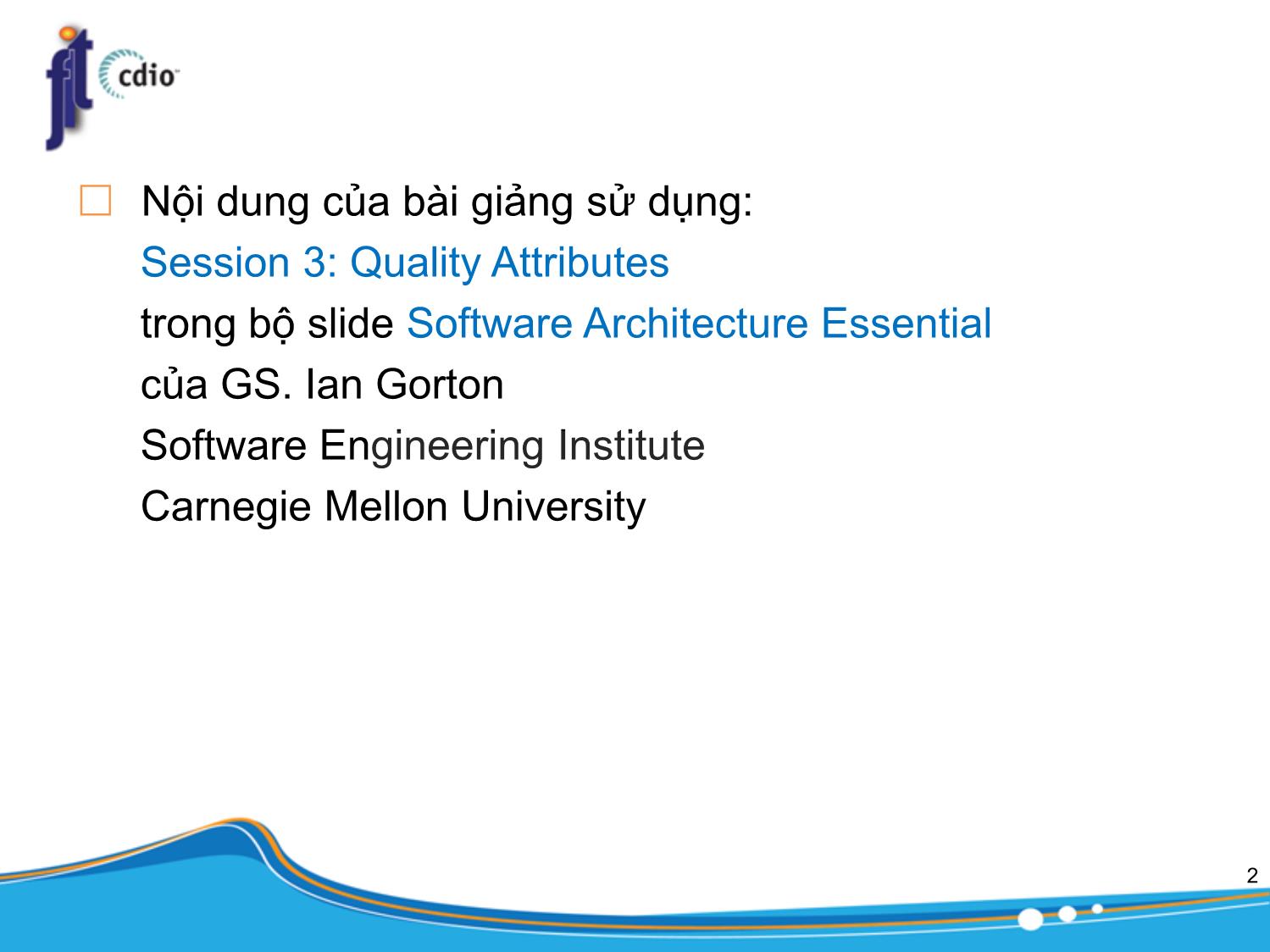
Trang 2
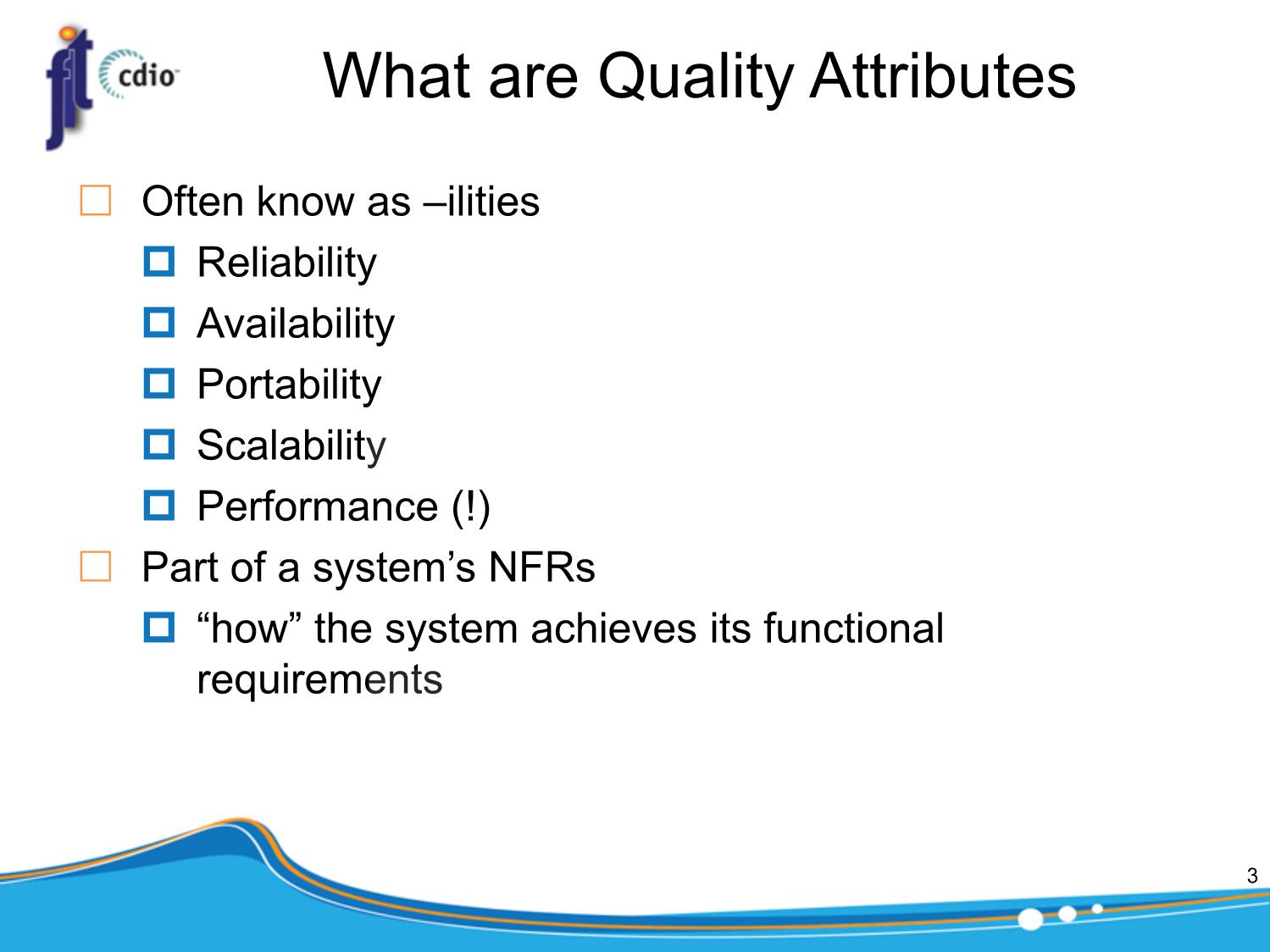
Trang 3
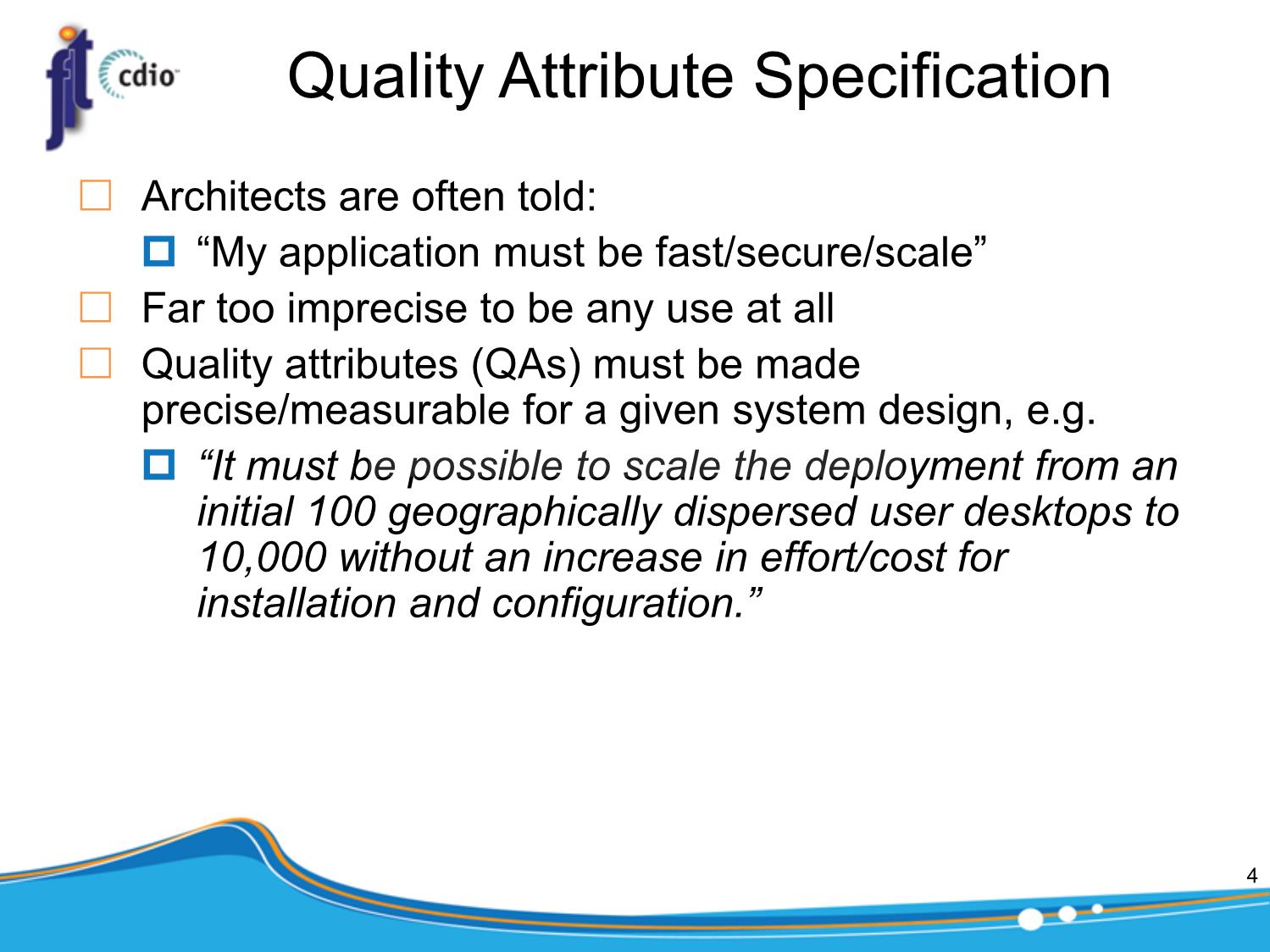
Trang 4
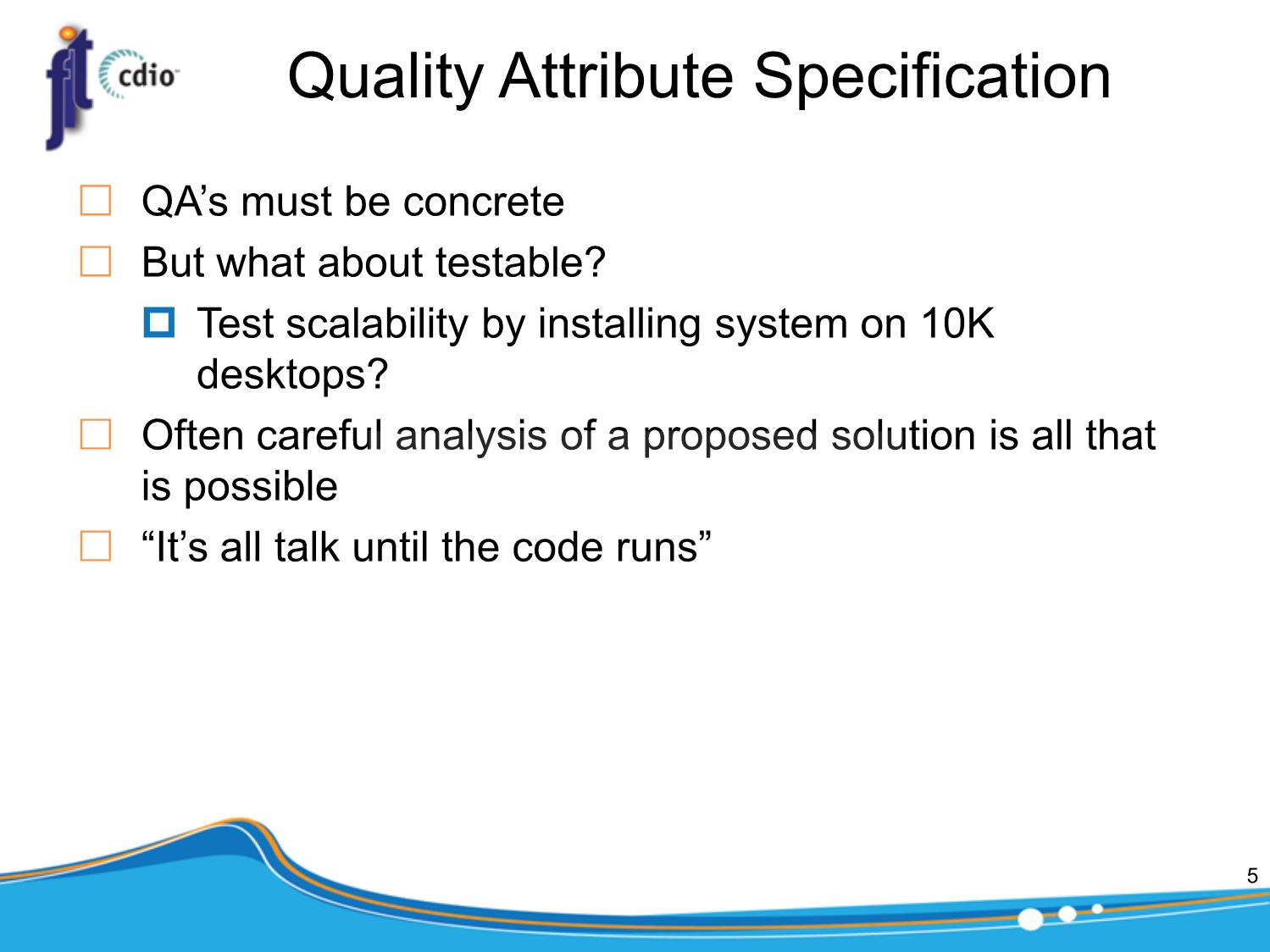
Trang 5
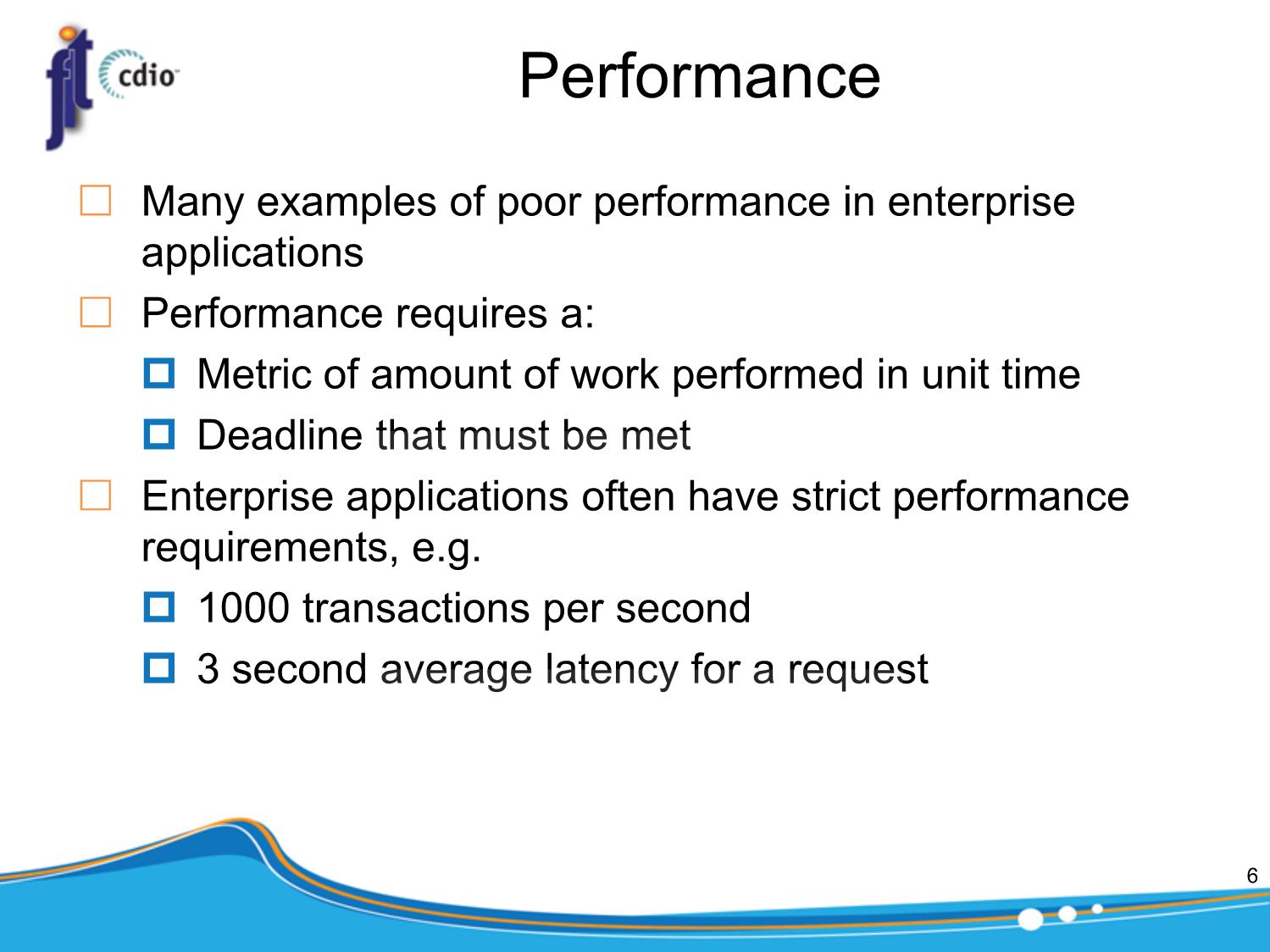
Trang 6
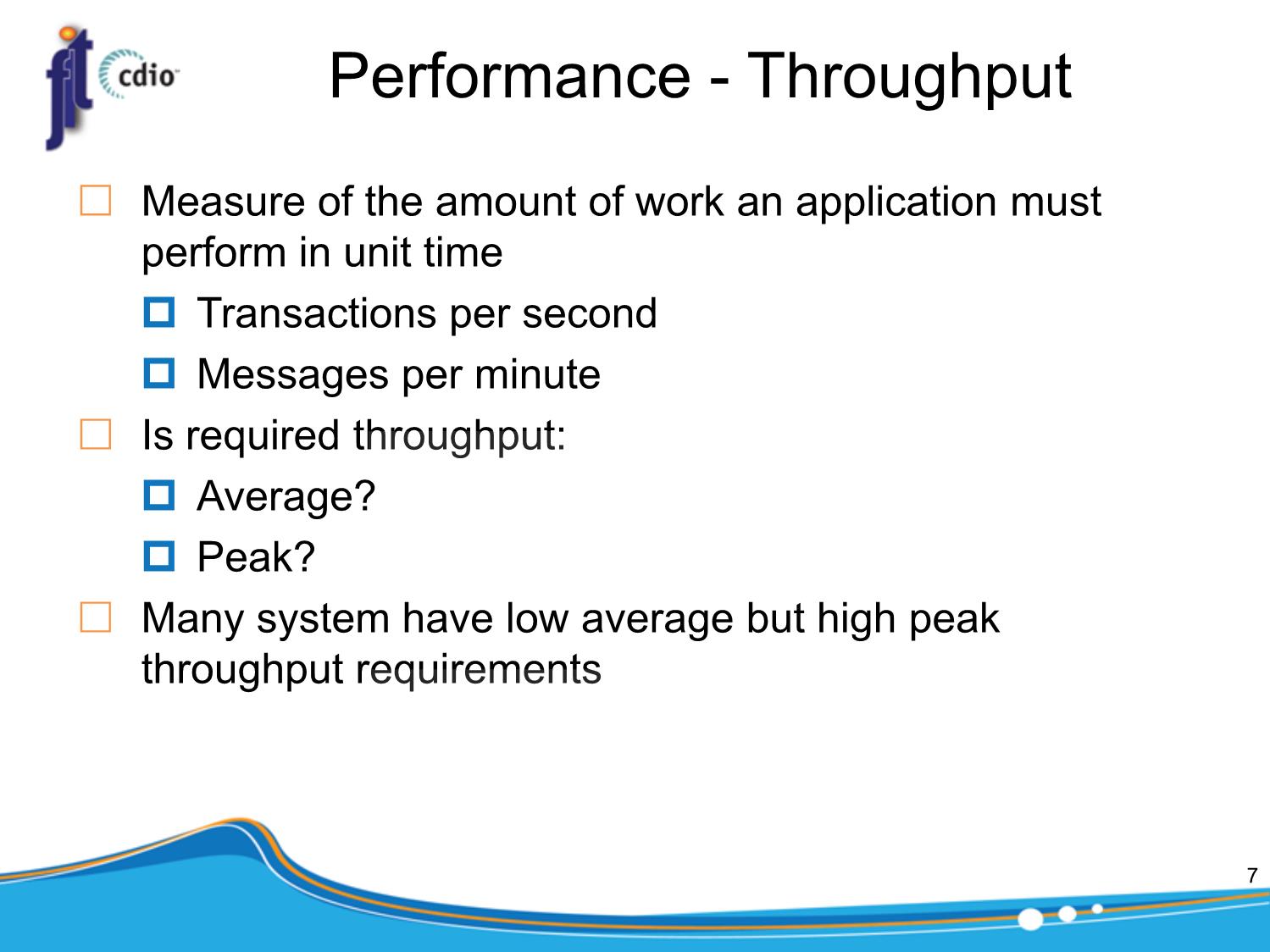
Trang 7
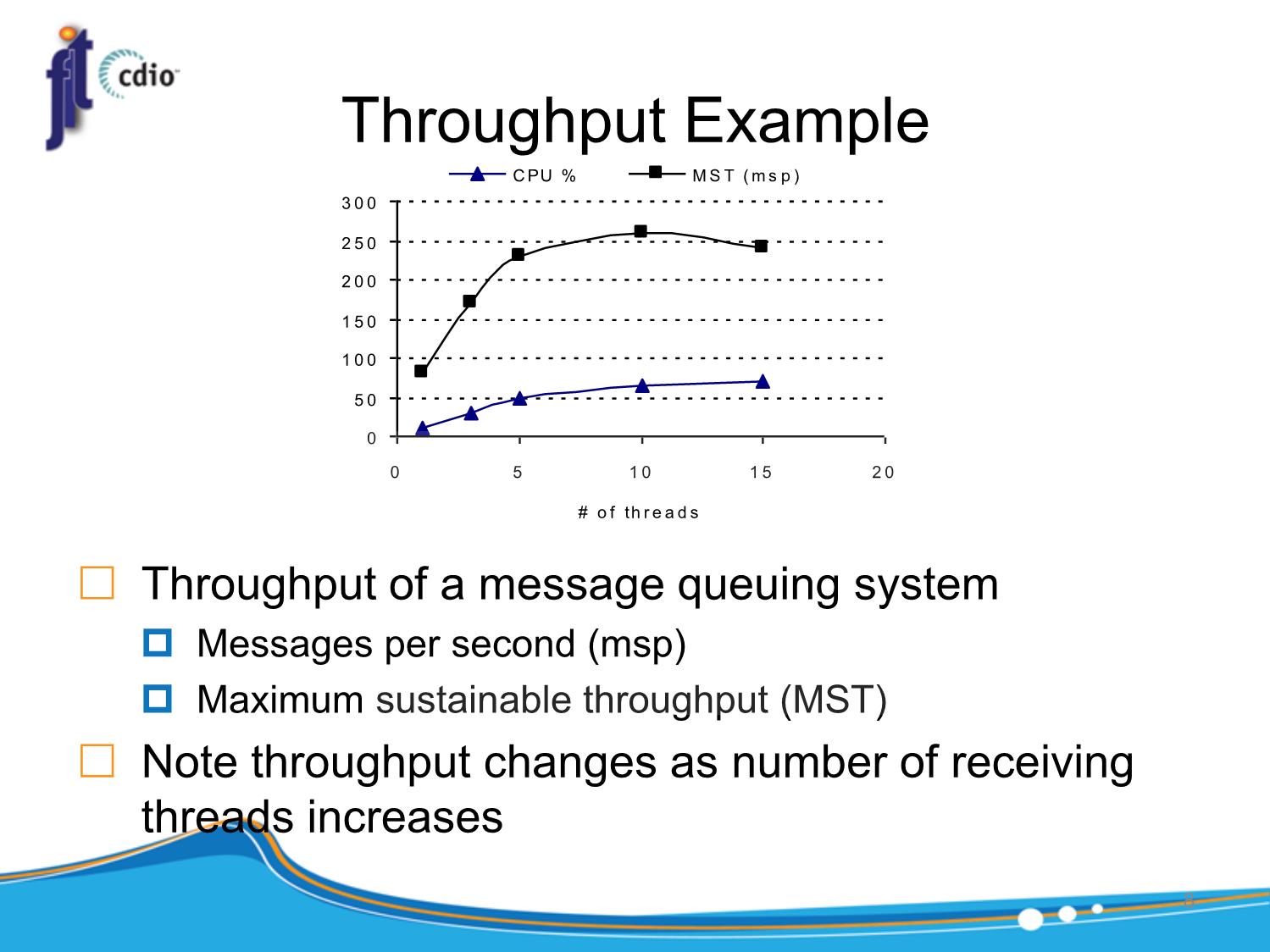
Trang 8
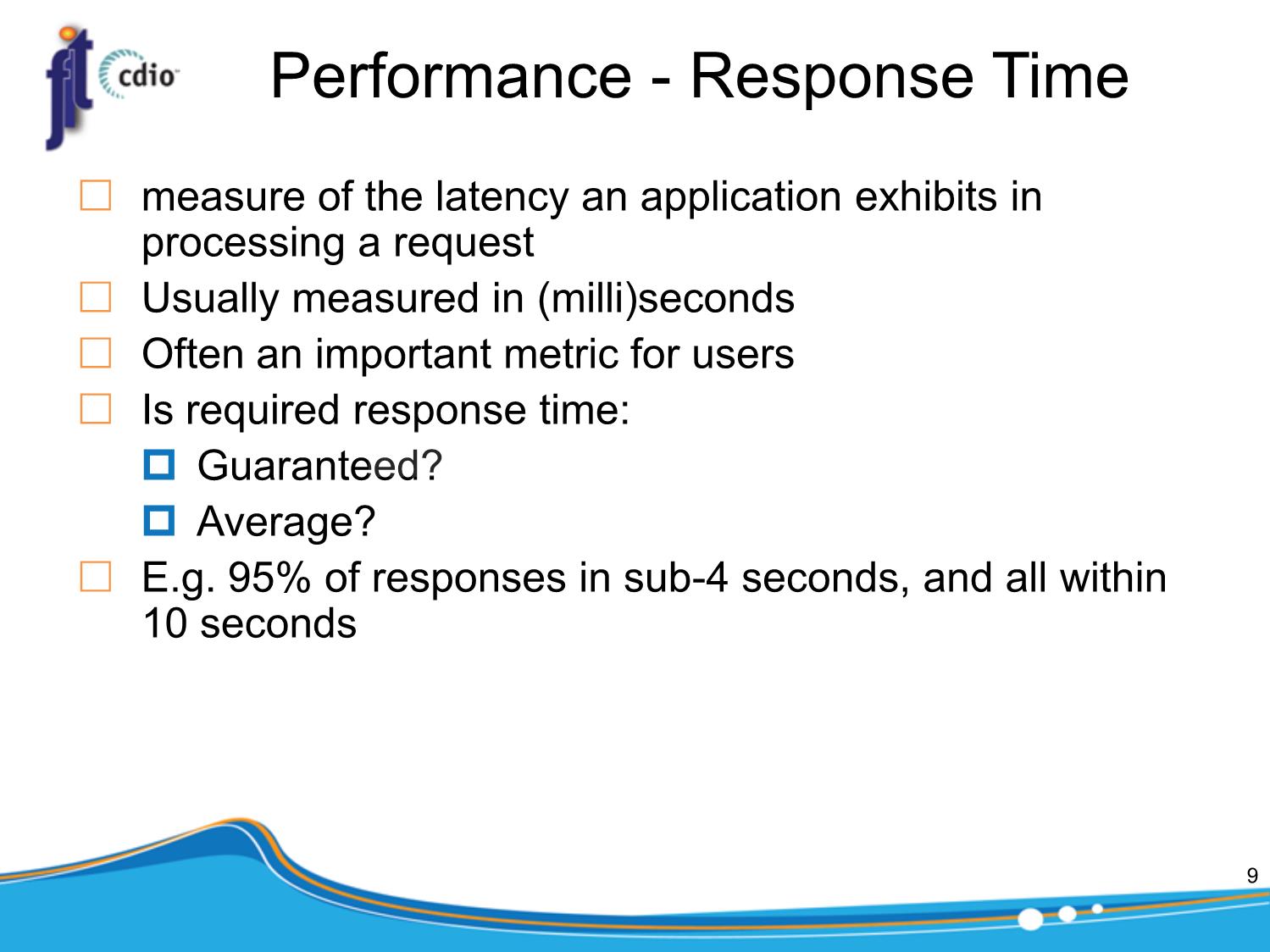
Trang 9
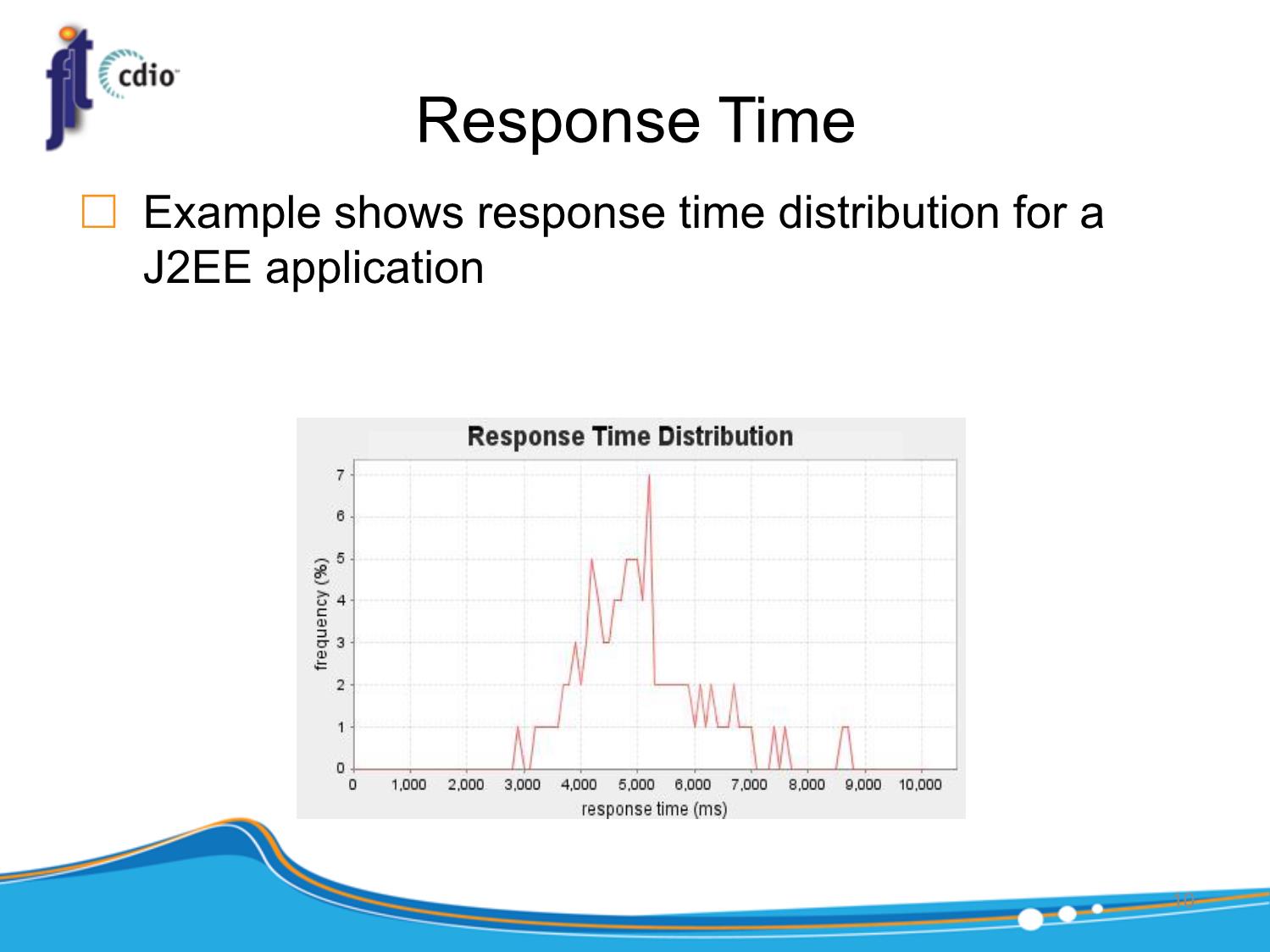
Trang 10
Tải về để xem bản đầy đủ
Tóm tắt nội dung tài liệu: Bài giảng Kiến trúc phần mềm - Chương: Các tiêu chí và yêu cầu về Kiến trúc phần mềm - Trần Minh Triết
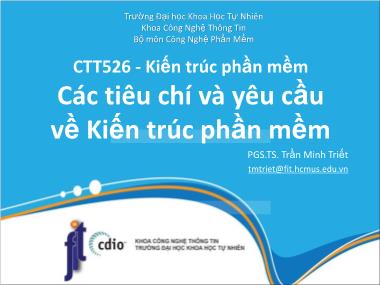
Trường Đại học Khoa Học Tự Nhiên Khoa Công Nghệ Thông Tin Bộ môn Công Nghệ Phần Mềm CTT526 - Kiến trúc phần mềm Các tiêu chí và yêu cầu về Kiến trúc phần mềm PGS.TS. Trần Minh Triết tmtriet@fit.hcmus.edu.vn Version 1.0 Nội dung của bài giảng sử dụng: Session 3: Quality Attributes trong bộ slide Software Architecture Essential của GS. Ian Gorton Software Engineering Institute Carnegie Mellon University 2 What are Quality Attributes Often know as –ilities Reliability Availability Portability Scalability Performance (!) Part of a system‟s NFRs “how” the system achieves its functional requirements 3 Quality Attribute Specification Architects are often told: “My application must be fast/secure/scale” Far too imprecise to be any use at all Quality attributes (QAs) must be made precise/measurable for a given system design, e.g. “It must be possible to scale the deployment from an initial 100 geographically dispersed user desktops to 10,000 without an increase in effort/cost for installation and configuration.” 4 Quality Attribute Specification QA‟s must be concrete But what about testable? Test scalability by installing system on 10K desktops? Often careful analysis of a proposed solution is all that is possible “It‟s all talk until the code runs” 5 Performance Many examples of poor performance in enterprise applications Performance requires a: Metric of amount of work performed in unit time Deadline that must be met Enterprise applications often have strict performance requirements, e.g. 1000 transactions per second 3 second average latency for a request 6 Performance - Throughput Measure of the amount of work an application must perform in unit time Transactions per second Messages per minute Is required throughput: Average? Peak? Many system have low average but high peak throughput requirements 7 Throughput Example C PU % M S T ( m s p ) 300 250 200 150 100 50 0 0 5 10 15 20 # of threads Throughput of a message queuing system Messages per second (msp) Maximum sustainable throughput (MST) Note throughput changes as number of receiving threads increases 8 Performance - Response Time measure of the latency an application exhibits in processing a request Usually measured in (milli)seconds Often an important metric for users Is required response time: Guaranteed? Average? E.g. 95% of responses in sub-4 seconds, and all within 10 seconds 9 Response Time Example shows response time distribution for a J2EE application 10 Performance - Deadlines „something must be completed before some specified time‟ Payroll system must complete by 2am so that electronic transfers can be sent to bank Weekly accounting run must complete by 6am Monday so that figures are available to management Deadlines often associated with batch jobs in IT systems. 11 Something to watch for What is a Transaction? Message? Request? All are application specific measures. System must achieve 100 mps throughput BAD!! System must achieve 100 mps peak throughput for PaymentReceived messages GOOD!!! 12 ICDE Performance Issues Response time: Overheads of trapping user events must be imperceptible to ICDE users Solution for ICDE client: Decouple user event capture from storage using a queue 5. Write event to ICDE database queue 2. Write event 1. Trap user event to queue 3. Return to user thread 4. Read event from queue 13 Scalability “How well a solution to some problem will work when the size of the problem increases.” 4 common scalability issues in IT systems: Request load Connections Data size Deployments 14 Scalability – Request Load How does an 100 tps application behave when simultaneous request load grows? E.g. From 100 to 1000 requests per second? Ideal solution, without additional hardware capacity: as the load increases, throughput remains constant (i.e. 100 tps), and response time per request increases only linearly (i.e. 10 seconds). 15 Scalability – Add more hardware Scale-up: Single application instance is executed on a multiprocessor machine Application Scale-out: Application replicated on different machines Application CPU Application Application Application 16 Scalability - reality Adding more hard ware should improve performance: scalability must be achieved without modifications to application architecture Reality as always is different! Applications will exhibit a decrease in throughput and a subsequent exponential increase in response time. increased load causes increased contention for resources such as CPU, network and memory each request consumes some additional resource (buffer space, locks, and so on) in the application, and eventually these are exhausted 17 Scalability – J2EE example 2500 2000 W A S S B J B o s s S B 1500 IA S S B TPS S S S B 1000 W L S S B 500 B E S S B 0 0 200 400 600 800 1000 1200 No. of Clients I.Gorton, A Liu, Performance Evaluation of Alternative Component Architectures for Enterprise JavaBean Applications, in IEEE Internet Computing, vol.7, no. 3, pages 18-23, 2003. 18 Scalability - connections What happens if number of simultaneous connections to an application increases If each connection consumes a resource? Exceed maximum number of connections? ISP example: Each user connection spawned a new process Virtual memory on each server exceeded at 2000 users Needed to support 100Ks of users Tech crash . 19 Scalability – Data Size How does an application behave as the data it processes increases in size? Chat application sees average message size double? Database table size grows from 1 million to 20 million rows? Image analysis algorithm processes images of 100MB instead of 1MB? Can application/algorithms scale to handle increased data requirements? 20 Scalability - Deployment How does effort to install/deploy an application increase as installation base grows? Install new users? Install new servers? Solutions typically revolve around automatic download/installation E.g. downloading applications from the Internet 21 Scalability thoughts and ICDE Scalability often overlooked. Major cause of application failure Hard to predict Hard to test/validate Reliance on proven designs and technologies is essential For ICDE - application should be capable of handling a peak load of 150 concurrent requests from ICDE clients. Relatively easy to simulate user load to validate this 22 Modifiability Modifications to a software system during its lifetime are a fact of life. Modifiable systems are easier to change/evolve Modifiability should be assessed in context of how a system is likely to change No need to facilitate changes that are highly unlikely to occur Over-engineering! 23 Modifiability Modifiability measures how easy it may be to change an application to cater for new (non-) functional requirements. ‘may’ – nearly always impossible to be certain Must estimate cost/effort Modifiability measures are only relevant in the context of a given architectural solution. Components Relationships Responsibilities 24 Modifiability Scenarios Provide access to the application through firewalls in addition to existing “behind the firewall” access. Incorporate new features for self-service check-out kiosks. The COTS speech recognition software vendor goes out of business and we need to replace this component. The application needs to be ported from Linux to the Microsoft Windows platform. 25 Modifiability Analysis Impact is rarely easy to quantify The best possible is a: Convincing impact analysis of changes needed A demonstration of how the solution can accommodate the modification without change. Minimizing dependencies increases modifiability Changes isolated to single components likely to be less expensive than those that cause ripple effects across the architecture. 26 Modifiability for ICDE The range of events trapped and stored by the ICDE client to be expanded. Third party tools to communicate new message types. Change database technology used Change server technology used 27 Security Difficult, specialized quality attribute: Lots of technology available Requires deep knowledge of approaches and solutions Security is a multi-faceted quality 28 Security Authentication: Applications can verify the identity of their users and other applications with which they communicate. Authorization: Authenticated users and applications have defined access rights to the resources of the system. Encryption: The messages sent to/from the application are encrypted. Integrity: This ensures the contents of a message are not altered in transit. Non-repudiation: The sender of a message has proof of delivery and the receiver is assured of the sender‟s identity. This means neither can subsequently refute their participation in the message exchange. 29 Security Approaches SSL PKI Web Services security JAAS Operating system security Database security Etc etc 30 ICDE Security Requirements Authentication of ICDE users and third party ICDE tools to ICDE server Encryption of data to ICDE server from 3rd party tools/users executing remotely over an insecure network 31 Availability Key requirement for most IT applications Measured by the proportion of the required time it is useable. E.g. 100% available during business hours No more than 2 hours scheduled downtime per week 24x7x52 (100% availability) Related to an application‟s reliability Unreliable applications suffer poor availability 32 Availability Period of loss of availability determined by: Time to detect failure Time to correct failure Time to restart application Strategies for high availability: Eliminate single points of failure Replication and failover Automatic detection and restart Recoverability (e.g. a database) the capability to reestablish performance levels and recover affected data after an application or system failure 33 Availability for ICDE Achieve 100% availability during business hours Plenty of scope for downtime for system upgrade, backup and maintenance. Include mechanisms for component replication and failover 34 Integration ease with which an application can be incorporated into a broader application context Use component in ways that the designer did not originally anticipate Typically achieved by: Programmatic APIs Data integration 35 Integration Strategies Interoperability through an API facade Application API Third Party Application Data Interoperability achieved by direct data access Data – expose application data for access by other components API – offers services to read/write application data through an abstracted interface Each has strengths and weaknesses 36 ICDE Integration Needs Revolve around the need to support third party analysis tools. Well-defined and understood mechanism for third party tools to access data in the ICDE data store. 37 Misc. Quality Attributes Portability Can an application be easily executed on a different software/hardware platform to the one it has been developed for? Testability How easy or difficult is an application to test? Supportability How easy an application is to support once it is deployed? 38 Design Trade-offs QAs are rarely orthogonal They interact, affect each other highly secure system may be difficult to integrate highly available application may trade-off lower performance for greater availability high performance application may be tied to a given platform, and hence not be easily portable Architects must create solutions that makes sensible design compromises not possible to fully satisfy all competing requirements Must satisfy all stakeholder needs This is the difficult bit! 39 Summary QAs are part of an application‟s non-functional requirements Many QAs Architect must decide which are important for a given application Understand implications for application Understand competing requirements and trade-offs 40 Selected Further Reading L. Chung, B. Nixon, E. Yu, J. Mylopoulos, (Editors). Non-Functional Requirements in Software Engineering Series: The Kluwer International Series in Software Engineering. Vol. 5, Kluwer Academic Publishers. 1999. J. Ramachandran. Designing Security Architecture Solutions. Wiley & Sons, 2002. I.Gorton, L. Zhu. Tool Support for Just-in-Time Architecture Reconstruction and Evaluation: An Experience Report. International Conference on Software Engineering (ICSE) 2005, St Loius, USA, ACM Press 41
File đính kèm:
 bai_giang_kien_truc_phan_mem_chuong_cac_tieu_chi_va_yeu_cau.pdf
bai_giang_kien_truc_phan_mem_chuong_cac_tieu_chi_va_yeu_cau.pdf

